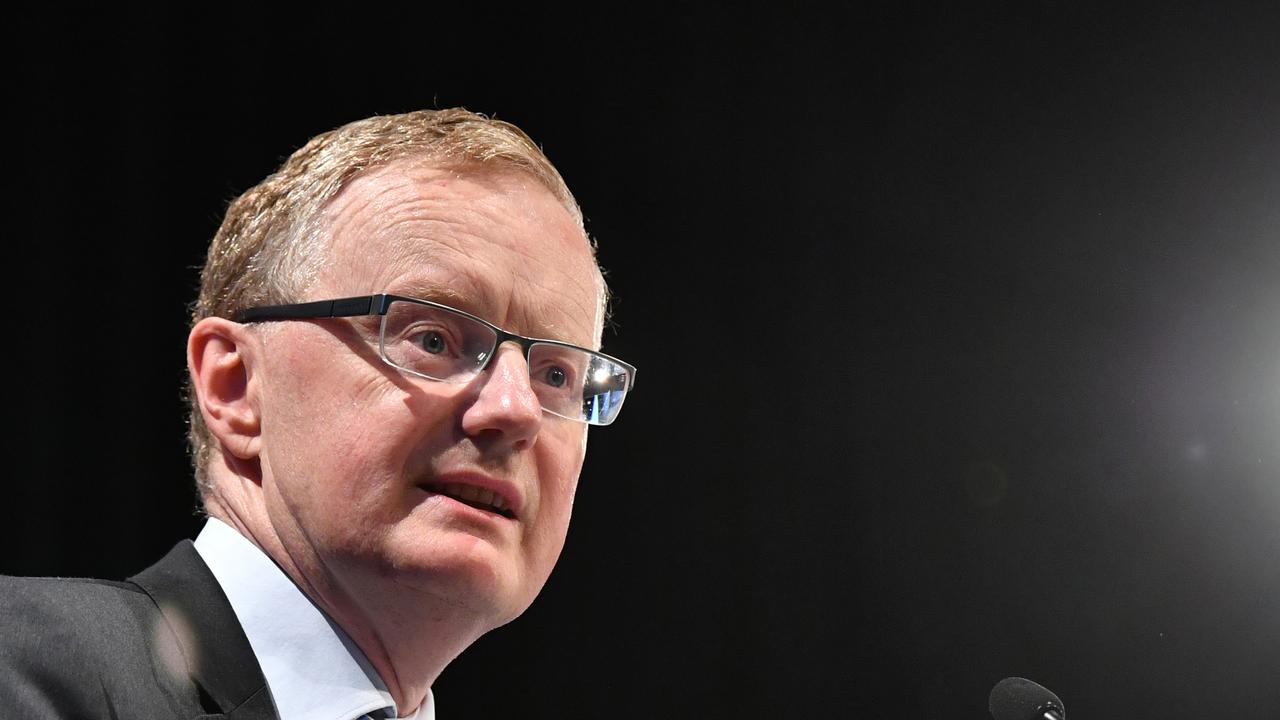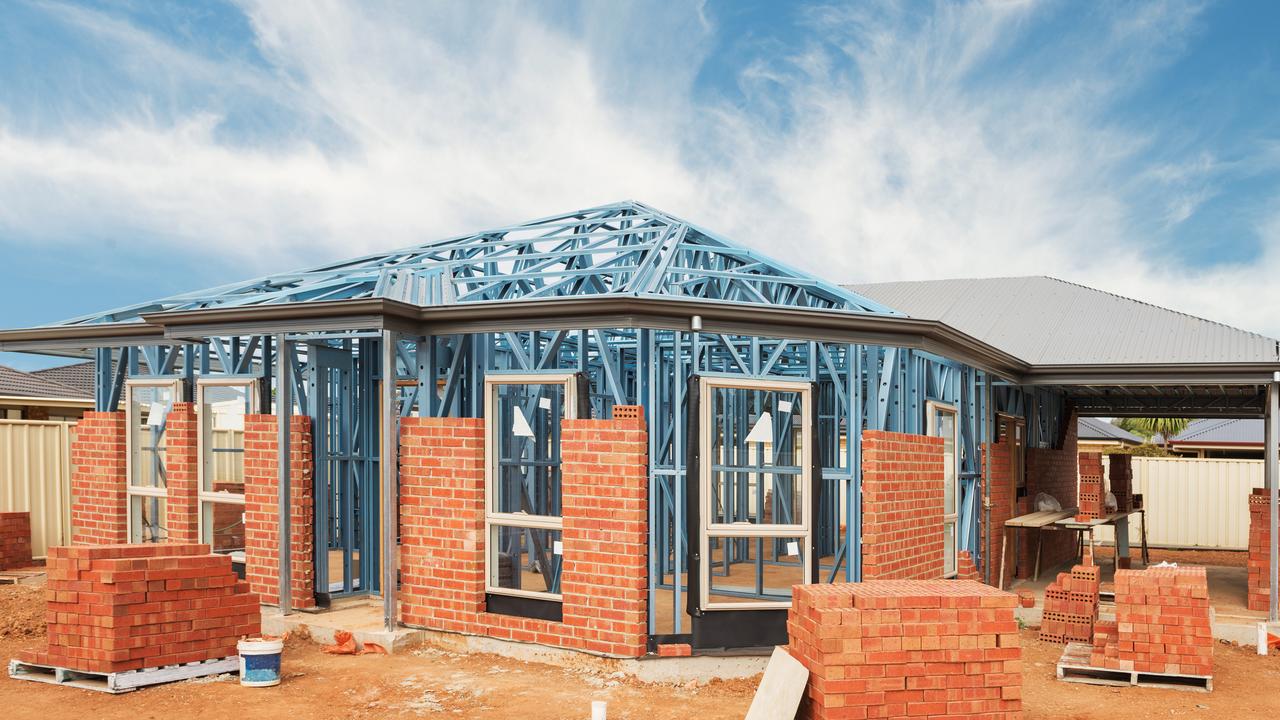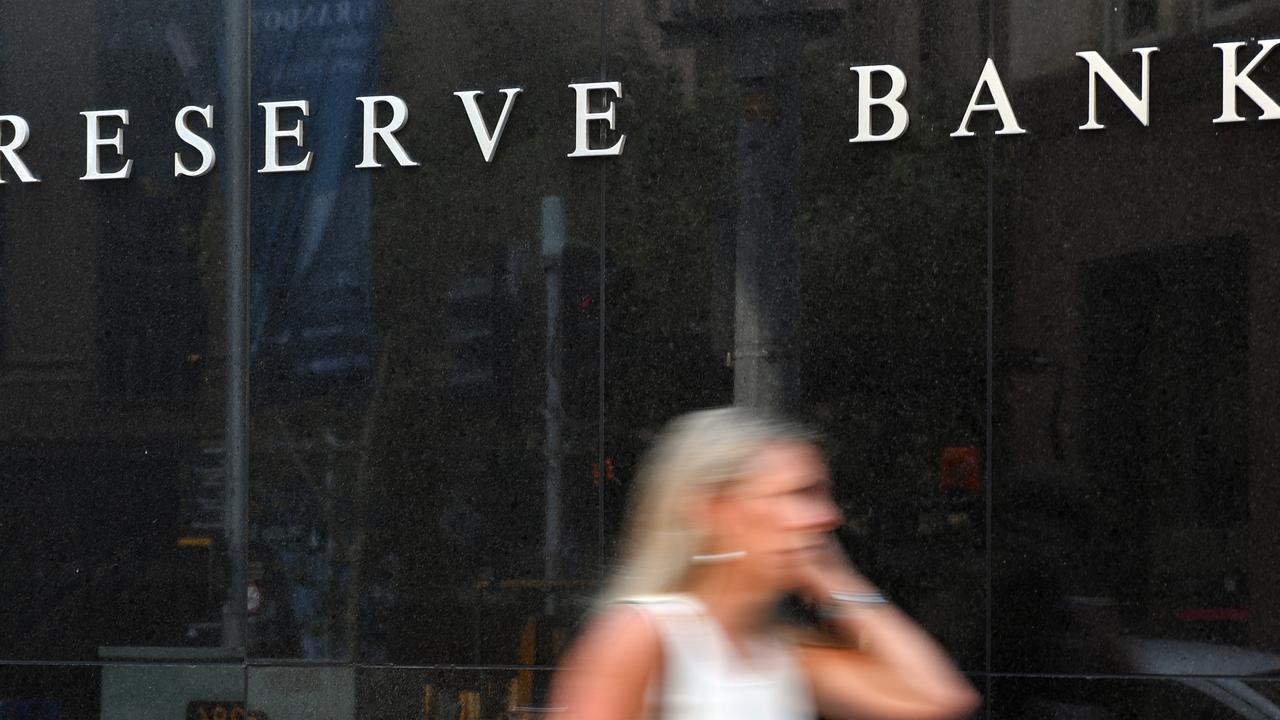RBA slashes cash rate to all-time low of 1.25 per cent
The Reserve Bank has cut the official cash rate for the first time in almost three years. This is what the record low means for you.
The Reserve Bank has made the historic move of cutting interest rates to an all-time low of 1.25 per cent, ending weeks of frenzied speculation.
RBA governor Philip Lowe made the announcement this afternoon, revealing the cash rate would be slashed by 25 basis points, from a previous low of 1.5 per cent.
The cut was the worst-kept secret in Australian economic news in recent weeks, with pundits universally agreeing it would be the inevitable outcome of the RBA’s June board meeting.
The board said the decision was made “to support employment growth and provide greater confidence that inflation will be consistent with the medium-term target.”
“Today’s decision to lower the cash rate will help make further inroads into the spare capacity in the economy,” the RBA board said in a statement.
“It will assist with faster progress in reducing unemployment and achieve more assured progress towards the inflation target.
“The board will continue to monitor developments in the labour market closely and adjust monetary policy to support sustainable growth in the economy and the achievement of the inflation target over time.”
RELATED: ‘No ammunition’: Rate cut disaster looms
RELATED: Tax office’s $150 deduction warning
Dr Lowe said the Australian economy was poised to “grow by around 2¾ per cent in 2019 and 2020” and also touched on “lower than expected” inflation outcomes and the continuing “adjustment in established housing markets” as factors in the decision.
But many Australian economists predict this is just the first of several cuts headed our way, with a second 25 basis point reduction believed to be on the cards as soon as August.
At its meeting today, the Board decided to lower the cash rate by 25 basis points to 1.25 per cent - https://t.co/SxC27hJ1NL
— RBA (@RBAInfo) June 4, 2019
Meanwhile, some even predict up to four cuts to 0.5 per cent by 2020, as the central bank scrambles to kickstart Australia’s stalling economy.
Dr Lowe has never adjusted policy settings during his time in the top job.
ANZ has become the first major bank to pass on the cut — although not in full, instead opting to give their variable home loan customers a 0.18 per cent cut.
In contrast, Athena, RACQ and Reduce Home Loans have announced they’ll be passing on the full 0.25 per cent cut.
Speaking immediately after the decision was announced, treasurer Josh Frydenberg had some harsh words for ANZ.
“I think the ANZ has let down its customers. This is deeply disappointing from the ANZ,” he said, urging other banks to do better.
CommBank has now passed the RBA’s interest rate cut on in full, reducing its rates by 0.25 per cent.
NAB will also reduce all standard variable rate home loans by 0.25 per cent per annum — the lowest it has been in more than 40 years.

The Australian dollar has also risen very slightly to US69.76.
While it was expected to fall in he wake of a rate cut, that slight increase indicates there was some expectation the RBA would reveal an even bigger cut of 0.5 per cent.
The ASX has also had a modest boost, up 14 points or 0.2 per cent to 6334.
The decision comes amid uncertain economic times, both within Australia and across the globe.
Locally, Australia is grappling with an increase in the unemployment rate, stagnating wage growth and weak inflation.
The housing market has also softened, although the rate of house price falls has slowed, with mortgage lending practices also loosened.
There are also troubling trends occurring globally, including the US-China trade war, the Venezuelan crisis, Brexit and Chinese debt.
THE REACTION
Financial markets had fully priced in a 0.25 percentage point cut, and the Australian share market was trading flat this afternoon as investors waited for the central bank’s decision.
But while the market will now react to the wording of the RBA’s policy statement to a certain extent, many expect Dr Lowe’s follow-up speech — scheduled for 7.30 tonight — to have a far bigger impact.
CoreLogic head of research Tim Lawless said he expected the focus now to turn to mortgage rates.
“Mortgage rates for owner occupiers are already around the lowest level since the 1960s and lenders are generally expected to pass on most, if not all of the cash rate cut to mortgage interest rates,” he said.
“Lower mortgage rates, together with the likelihood of lower borrower serviceability assessments if APRA delivers on a relaxation to the base serviceability rate later this month, as well as renewed confidence following the federal election, are likely to see an improvement in housing market activity.”
Interest rates going down will not stimulate the economy.
— Solo Monk (@JJKALE2) June 3, 2019
Try:
- Building public housing not prisons
- Raise the Age pension & Newstart
- Raise the Minimum wage
- Restore Penalty rates
- Give people a living wage & they will have money to spend to keep the economy ticking over.
"They're not cutting interest rates because the economy is doing well. Interest rates are being cut to 50 year lows because the economy is struggling." - Joe Hockey when interest rates were cut to 2.25% in August 2013 #auspol
— James Scullin 💧 (@JamesScullin) June 4, 2019
However, he questioned just how effective the rate cut would be.
“With credit policies remaining tight, the stimulus of lower rates isn’t likely to be as effective in kick starting the housing market as what we have seen in the past,” he said.
“Borrowers are facing much closer scrutiny on their income and expenses as lenders become less reliant on HEM (Household Expenditure Measure) benchmarks, and comprehensive credit reporting is providing lenders with greater transparency around borrower debt levels and credit standing.
“Overall, the latest rate cuts together with lower serviceability assessments for borrowers and greater confidence following the federal election should help to support an earlier than expected trough in housing values, but we aren’t expecting a rapid reversal in house price declines due to ongoing tight credit policies and, more broadly, economic uncertainty as global trade tensions escalate.”

Meanwhile, Real Estate Buyers Agents Association (REBAA) president Rich Harvey said APRA’s proposed relaxation of the home loan lending rules would be even more helpful for borrowers than today’s rate cut.
“This will have an even greater impact on increasing a borrower’s capacity which will eventually filter its way into the economy and support the property market,” Mr Harvey said.
“While today’s interest rate cut will give borrowers more mild relief from bank interest, the major benefit is that it helps stimulate demand for borrowing and injects confidence into the property market.
“On the flip side it also demonstrates the economy is sluggish and needs monetary policy to generate more activity.”
According to an analysis by comparison site finder.com.au, the average home loan size in Australia is $384,700, while the average variable rate sits at 4.91 per cent.
That means a reduction of 25 basis points to 4.66 per cent “could lead to a savings of almost $700 per year, which is equivalent to almost $21,000 over the life of your loan”.
OTHER IMPACTS
The rate cut will affect almost all Aussies to a certain degree, even those without a mortgage.
Those with savings in the bank will notice less monthly interest coming in, while self-funded retirees will also see their income take a hit.
People who have invested in shares will likely win, as RBA interest cuts usually translate to a share market rally.
The cut will likely lower the Aussie dollar, which is bad news for people heading overseas on a holiday, but good for the export industry.
And given it is designed to encourage spending, it could also give a welcome boost to retail and small business owners.
Sky News business reporter Chris Kohler told news.com.au the rate cut would be a win for home loan customers and lenders.
Here's what a rate cut at tomorrow's RBA meeting would mean for the average mortgage holder (@RateCity research).
— Chris Kohler (@_chriskohler) June 3, 2019
Tune into @SkyNewsAust all day tomorrow for expert commentary pic.twitter.com/4exjPujrhV
“Eyes will turn pretty immediately to the big four banks and whether or not they will pass on the rate cut in full,” he said.
“Josh Frydenberg has been pressuring them pretty hard, but for banks, it’s all about margins.
“But it will be pretty difficult for them not to throw mortgage holders a bit of a bone here, because it will be the first real confidence test for them since the royal commission wrapped up.”
Mr Kohler said a rate cut was a “signal the economy was not all that strong” and said most economists believed it was “the first of many”.
“We’re in uncharted territory — we were already at record low levels, so to take that further means we’re going into unknown areas.”
THE BIG FOUR
Now the official cash rate has been cut, attention is turning to our banks as many question whether Australia’s financial institutions will actually pass it on in full.
Treasurer Josh Frydenberg is believed to have already personally asked Australia’s leading financial institutions to pass on the entire rate cut.
But according to comparison site Mozo, the “big four” banks have pocketed around $3.6 billion in revenue by not passing on the August 2016 cut in full.
Also, by delaying the date at which their partial cuts in August 2016 took effect, they pulled in $7.1 million per day — or $113 million in total.

Yesterday, Australian Retailers Association executive director Russell Zimmerman said while a rate cut would likely boost the retail sector, especially with the recent minimum wage increase and tax cuts coming on July 1, it would be up to banks to ultimately pass those cuts on.
“By the time you add a rate cut plus the increase in minimum wage and the reduction in tax — provided that all goes through — we should see a bit more buoyancy in the economy,” he said.
“It’s probably fair to say if we see some easing of interest rates, the biggest issues will be if the banks actually hand those through. It’s fine to reduce rates, but we need banks to actually hand them through.”
While today’s announcement brings the official cash rate to an all-time low, the highest ever recorded was 21.4 per cent in April 1982 under the Fraser government.
Continue the conversation @carey_alexis | alexis.carey@news.com.au




